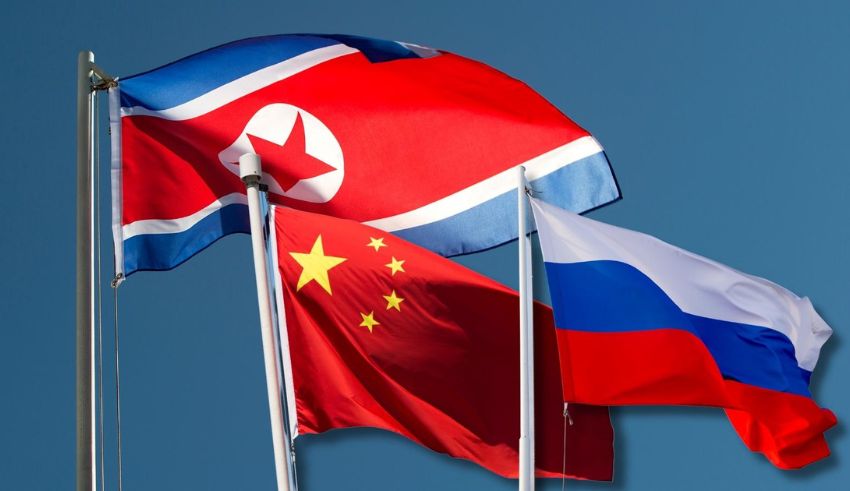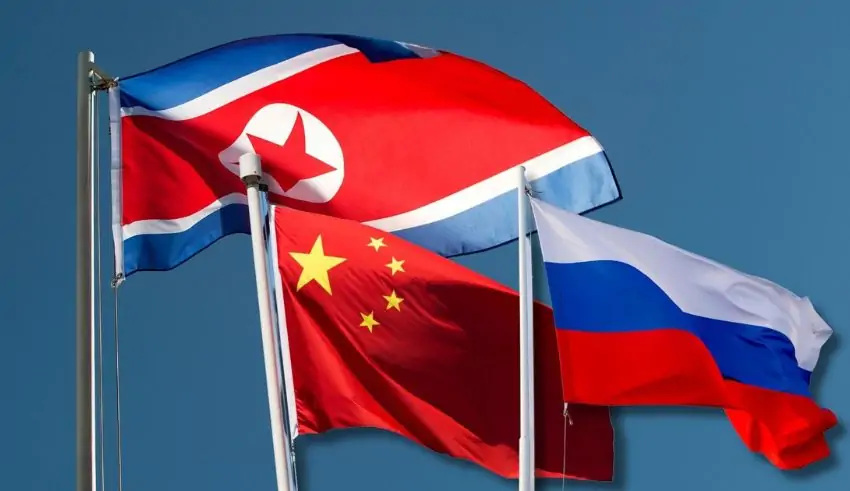

(C) ANKASAM
The recent meeting between Russian President Vladimir Putin and North Korean leader Kim Jong Un at a space launch center in the Russian Far East has raised concerns among the US and its allies about the growing cooperation between the two countries.
The summit, which took place on September 13, 2023, was the first face-to-face meeting between the two leaders since 2019, and came amid rising tensions over North Korea’s nuclear and missile programs, as well as Russia’s military aggression in Ukraine and elsewhere.
The US and its allies have long sought to isolate and pressure North Korea and Russia over their destabilizing behavior, but their efforts have been undermined by China, which has maintained close economic and diplomatic ties with both countries. China is North Korea’s largest trading partner and main source of aid, and also shares a strategic partnership with Russia that includes joint military exercises, energy cooperation and coordination on global issues.
China may not view the deepening relationship between Russia and North Korea as a threat, but rather as a potential advantage in its rivalry with the US. China may see the trilateral partnership as a way to balance the US-led alliance system in the Asia-Pacific region, and to create more leverage in its negotiations with Washington on various issues, such as trade, human rights and Taiwan.
However, China’s support for Russia and North Korea may also come with risks and challenges. China may not have full control or influence over the actions and intentions of its partners, and may face the consequences of their provocations and miscalculations.
For instance, China may not be able to prevent North Korea from conducting a nuclear test, which could trigger a military response from the US and its allies, and escalate the situation on the Korean Peninsula. China may also have to deal with the fallout of Russia’s invasion of Ukraine, which could lead to more sanctions, diplomatic isolation and security threats for Moscow.
Moreover, China may have to balance its interests and obligations with its partners, and avoid being dragged into conflicts that are not in its favor.
China may not want to jeopardize its relations with other countries, such as South Korea, Japan and the European Union, which are important for its economic development and global influence. China may also have to manage the potential competition and mistrust among its partners, who may have divergent or conflicting goals and agendas.
Therefore, China may have to adopt a more nuanced and pragmatic approach to its relations with Russia and North Korea, and seek to maintain stability and dialogue in the region, while also protecting its own interests and values. China may also have to engage more constructively with the US and its allies, and find areas of common ground and cooperation on global challenges, such as climate change, pandemic prevention and non-proliferation.
China may realize that a closer Russia and North Korea may not be in its best interest, and that a more cooperative and responsible role in the international community may serve it better in the long run.
BLACKPINK's Lisa Declines to Perform at Miss Universe 2025 BLACKPINK's Lisa, who recently stole the limelight at the 2025 Coachella…
Japan's long-standing auto manufacturer Toyota has now officially partnered with Waymo, a U.S. company in the business of self-driving technologies,…
Malaysia Airlines' service expansion to Australia involves the deployment of modern Airbus A330neo aircraft with private business class suites that…
According to state media KCNA, On Wednesday North Korea conducted its first test-firing of the recently displayed “Choe Hyon-class” warship…
Samsung Electronics released a robust set of first-quarter results today, driven by strong smartphone sales particularly with its new Galaxy…
HYCO1 and Malaysia LNG (MLNG) teamed up through a memorandum to establish a revolutionary carbon capture and utilization plant in…
This website uses cookies.
Read More